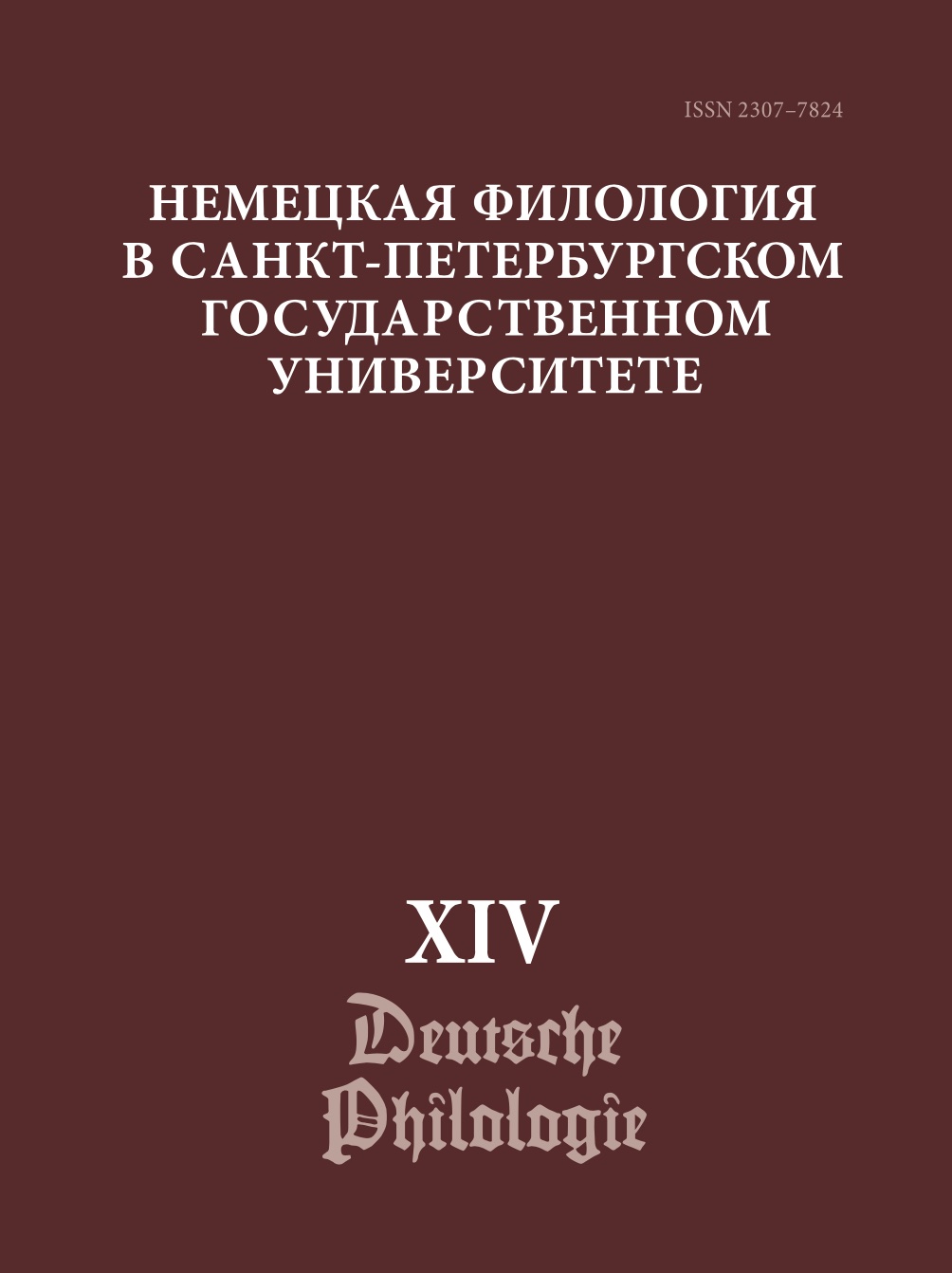LINGUISTIC ANALYSIS OF FREQUENCY COLLOCATIONS USING THE SKETCH ENGINE TOOL (on the material of German war memoirs)
DOI:
https://doi.org/10.21638/spbu33.2024.124Abstract
This article examines the peculiarities of collocations in the memoirs of German officers of the Second World War. The study is based on the hypothesis that collocations of certain keywords relevant for officers in terms of their particular militaristic worldview reflect defence strategies and the memoirs’ authors’ desire to absolve themselves of guilt and responsibility for the crimes of the Nazi regime. The aim of the study is to examine the collocations obtained through corpus analysis. Two tasks were accomplished: to analyse the historical context and to consider the two main linguistic approaches to the definition of the concept of collocation. The material for the analysis was the memoirs of three German officers — Albert Kesselring, Erich Manstein and Karl Denitz. The key words were taken from the work of H. Kemper’s «Ein Wörterbuch zum Schulddiskurs 1944–1955», which is a dictionary compiled also from memoirs of the German military. For selected keywords such as Pflicht ‘duty’, Befehl ‘order’ and Hitler, concordances were compiled using Sketch Engine software, the lists of which were ranked by frequency of use. The relevance of this study lies in its interdisciplinary character, since the collocations obtained by means of corpus analysis were analysed with the involvement of a specific historical context, which makes a certain contribution to the study of linguodiscursive features of memoirs of German officers of the Second World War and makes it possible to highlight the linguistic and extra-linguistic features characteristic of them.
Keywords:
political discourse, collocations, political keywords, memoirs
Downloads
References
References
Downloads
Published
How to Cite
Issue
Section
License
Условия передачи авторских прав на статьи и рецензии, опубликованные в ежегодном периодическом издании «Немецкая филология» регулируются условиями Лицензионного Договора автора с Санкт-Петербургским государственным университетом. В соответствии с Лицензионным Договором опубликованные материалы находятся в открытом доступе, а авторам бесплатно предоставляется неограниченные возможности их распространения и самостоятельного архивирования.




